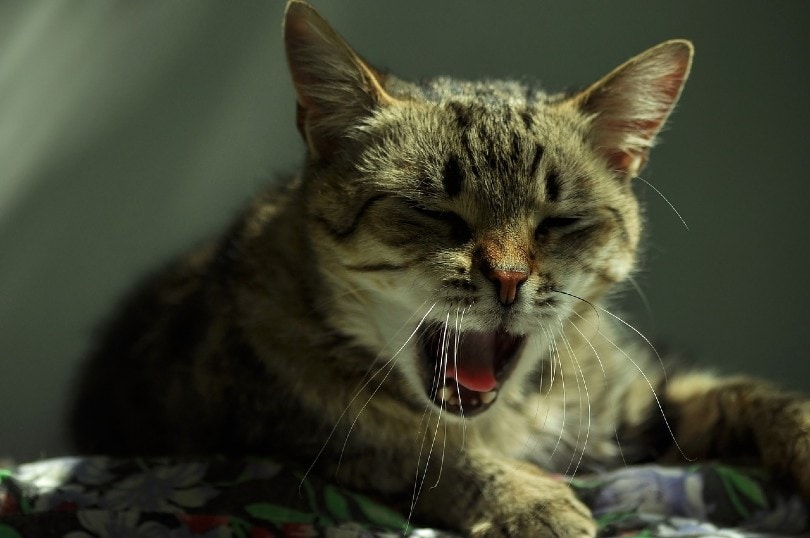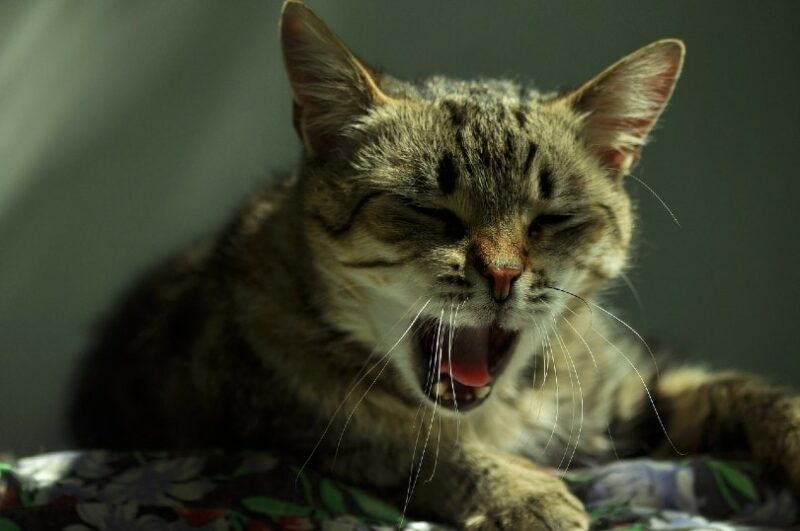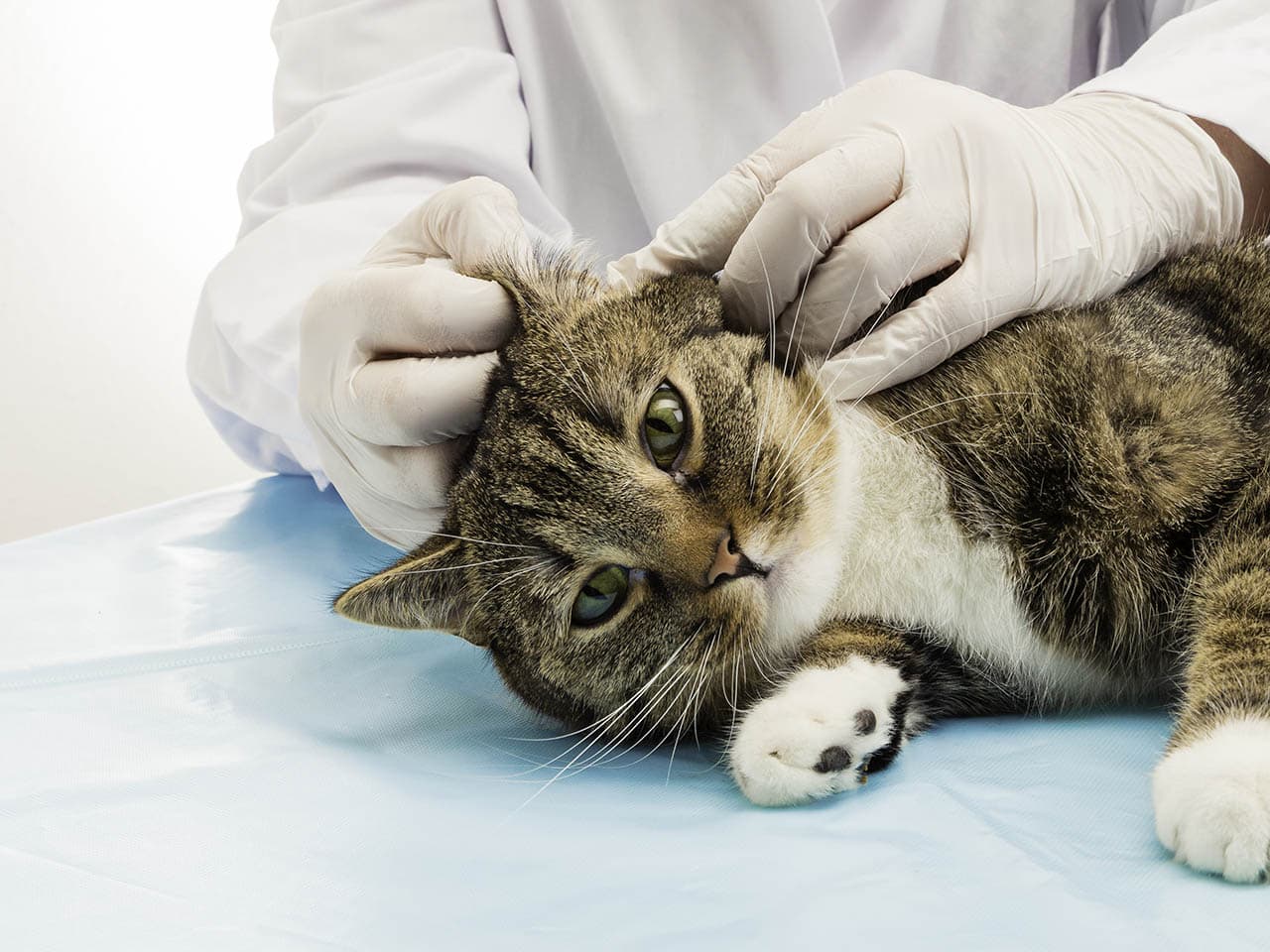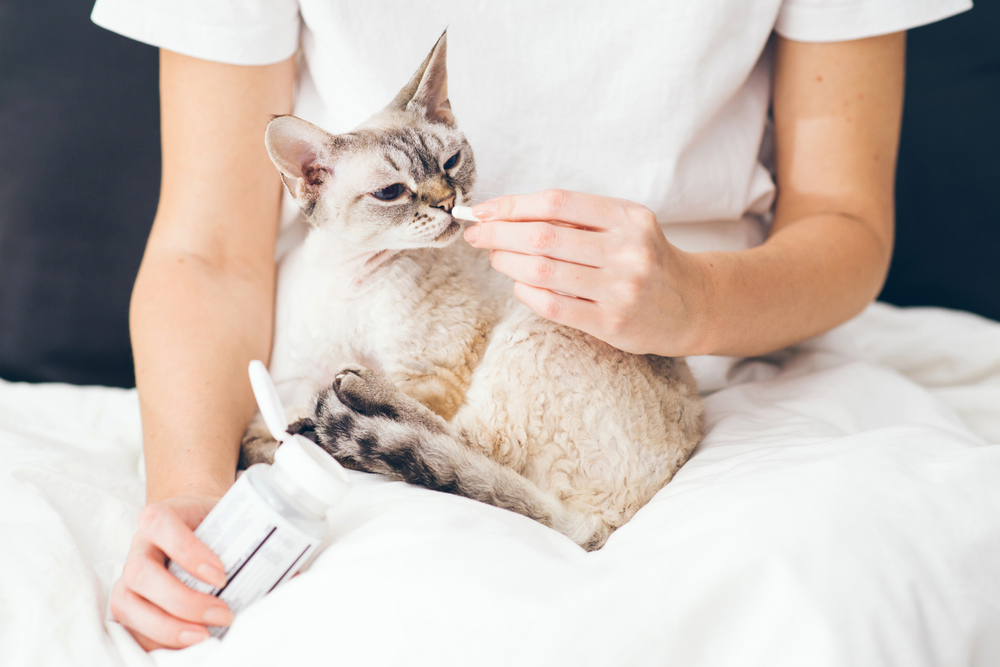Click to Skip Ahead
If your cat coughs once or a few times after drinking water, it is possible that they drank water too quickly or were temporarily distracted, and a few drops ended up on the wrong pipe, so to speak. In this scenario, there is no need to be alarmed.
If your cat often coughs after drinking water, though, you must contact your vet who will establish the cause. Things that can make your cat cough frequently are drinking water too quickly or too much, swallowing or inhaling a foreign object together with the water, their collar being too tight around their neck, the water having an unpleasant taste, or it being the result of conditions like allergies or respiratory diseases.
What you can do to help your cat will vary depending on the cause. For example, if your cat’s collar is too tight, loosen it, or if they suffer from a medical condition (and show other clinical signs), contact the veterinarian as soon as possible.
The 6 Possible Reasons Why Your Cat Coughs After Drinking Water
1. Your Cat Is Drinking Water Too Quickly
- You have several pets, and your cat is being bullied by other pets when they try to eat and/or drink water.
- Your cat is dehydrated.
- Your cat is more thirsty than usual.
- Your cat just had a tiring exercise session.
- Your cat is too hot.
- Consult a vet if you believe your cat is drinking more than usual.
- Ensure your cat has plenty of shade and fresh air in the warmer months and that they are protected from the heat.
- Place their water (and food) bowl in a quiet place, where the other pets don’t have access.
- Change the water often.
- Place multiple water bowls around the house.
- Purchase a cat water fountain.
- Provide water at the right temperature.
2. Your Cat Is Drinking Too Much Water
If your cat is constantly thirsty and drinks a large amount of water at once, or more commonly keeps going back to their water bowl, it may be a sign that they are suffering from certain medical conditions.
- Kidney disease
- Liver disease
- Diabetes
- Gastroenteritis
- Urinary tract disease
- Hyperthyroidism 1
- Unkempt coat
- Lack of appetite
- Weight loss
- Sunken eyes
- Lethargy (sleeping excessively)
- Vomiting
Your cat can also drink a large amount of water when they have a fever or when their food is too salty.
Kidney and liver failure are chronic diseases that will cause changes in your cat’s appetite and drinking. Diabetes and hyperthyroidism can be kept under control with the right medication and regular monitoring. For these reasons, it is crucial to take your cat to the vet if they are showing signs of illness.
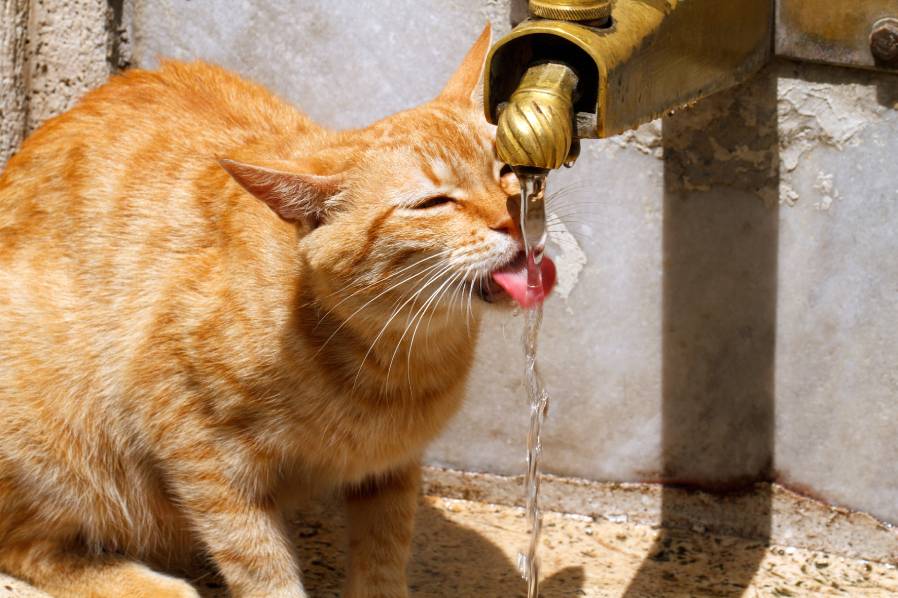
3. Your Cat’s Collar Is Too Tight
Maybe you just purchased a new collar for your cat and tightened it too much. In this case, your cat may have difficulty swallowing food and water.
To solve the problem, adjust the collar in such a way that you can insert two fingers under it. If you can’t turn the collar around your cat’s neck, it means it is too tight.
4. Your Cat Doesn’t Like the Taste of the Water
In general, cats are sensitive to smells and tastes, especially strong ones. That is why your cat might seem picky about their water or food.
Plastic bowls can give the water an unpleasant taste. For this reason, it is recommended to purchase ceramic or stainless-steel water and food bowls. Moreover, do not leave your pet’s water bowl in the sun for too long because algae can grow, which can give it a bad taste. Clean your cat’s bowls regularly.
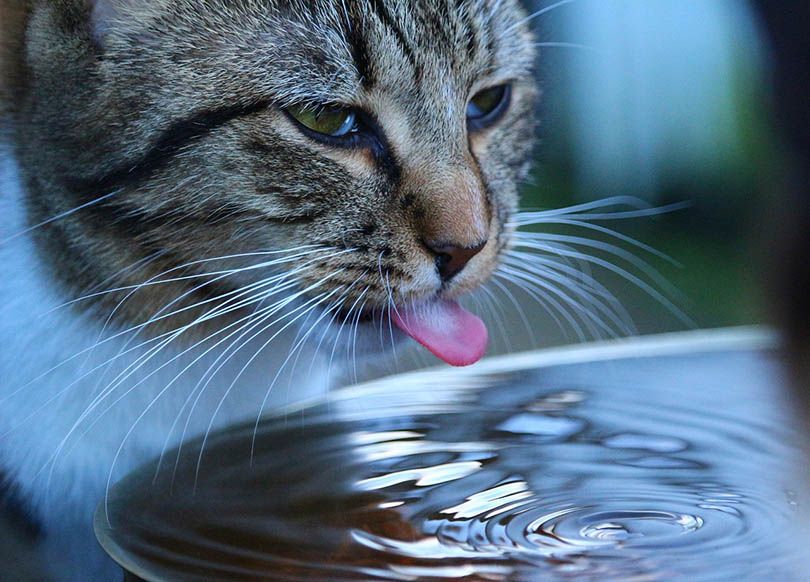
5. Your Cat May Have Swallowed or Inhaled a Foreign Object Along With the Water
Cats can cough when a foreign object gets into their mouth with water. Whether it is a hair or kibble, it can stick to the roof of your cat’s mouth or throat, causing them to cough to get it out. Sometimes, foreign bodies may also get stuck at the very back of the throat or even get inhaled, also leading to coughing, sneezing, and exaggerated swallowing.
If this is the case with your cat, look in their mouth for the foreign body, and try to remove it if it is easily accessible. If the object is large or your cat seems to be choking or breathing with difficulty, go to the vet immediately.
6. Your Cat Suffers From a Medical Condition
What can cause your cat to cough after drinking water are allergies, asthma, dental disease, and respiratory diseases.
- Cleaning supplies
- Deodorants
- Dust
- Mold
- Pollen
Allergies, along with respiratory diseases, can irritate your cat’s throat, which can lead to coughing. If your cat is suffering from allergies, they will also show other clinical signs.
- Breathing difficulties
- Wheezing
- Hair loss
- Excessive scratching, chewing, and biting
- Skin irritation
- Frequent ear infections
- Lack of appetite
- Weight loss
- Apathy
Other causes for respiratory irritation or an infection may be viral illness caused by feline calicivirus or herpesvirus.
- Coughing
- Sneezing
- Conjunctivitis
- Nasal and ocular discharge
- Oral ulcers
- Poor appetite
Asthma in cats may also lead to similar signs, such as wheezing and coughing. If your cat shows any of these clinical signs, it is time to take them to the vet for an evaluation.
Frequently Asked Questions
What Should I Do if My Cat Is Choking?
If your cat is choking, you must act quickly. Wrap your cat in a towel to make sure they do not struggle and/or scratch you, leaving only their head exposed. Tilt your cat’s head slightly backward so you can open their mouth. If the object is visible, try to remove it (with a pair of tweezers). If you do not see the object or cannot remove it safely, take your cat to the vet immediately.
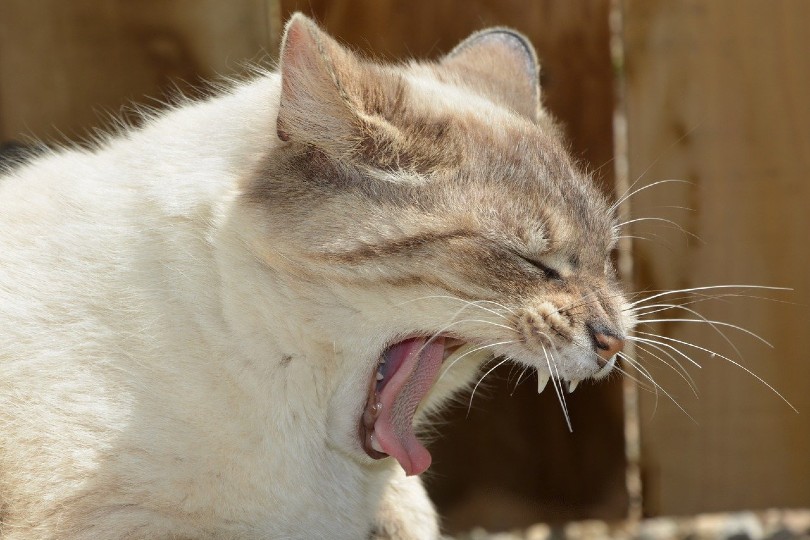
Why Does My Cat Throw Up After Drinking Water?
A cat may vomit after drinking water for several reasons. The most common include that your cat is nauseated, and water on an empty stomach made them vomit; your cat drank a large amount of water in a short period; or your cat is trying to eliminate a hairball. Also, if this vomiting is accompanied by other clinical signs, such as vomiting food, lethargy, decreased appetite, or diarrhea, it is necessary to take them to the veterinarian as soon as possible.
When Should I Worry About My Cat’s Cough?
If your cat has been coughing frequently for 24 hours or longer or is showing any other signs of illness, it’s time to visit the vet. A persistent cough can be an indicator of respiratory disease. In addition to coughing, your cat may show the following clinical signs: wheezing, panting, difficulty breathing, lethargy, fever, and lack of appetite. Labored and open mouth breathing are genuine emergencies and need immediate veterinary attention.
Conclusion
Cats can cough after drinking water for many reasons. The most common are drinking water too quickly or too much at once, the collar being too tight, having respiratory diseases or allergies, asthma, foreign objects being stuck at the back of the throat, or the water having a bad taste. Consult with your vet, who will identify the cause and prescribe appropriate treatment for your cat if required.
You should also ensure that your cat drinks fresh water every day and that the water is at the right temperature. Clean the water bowl periodically, use only ceramic or stainless-steel bowls, and do not tighten the collar around your cat’s neck too much. If other clinical signs occur or the coughing is persistent, take your cat to the vet.
Featured Image Credit: Ihtar, Pixabay

